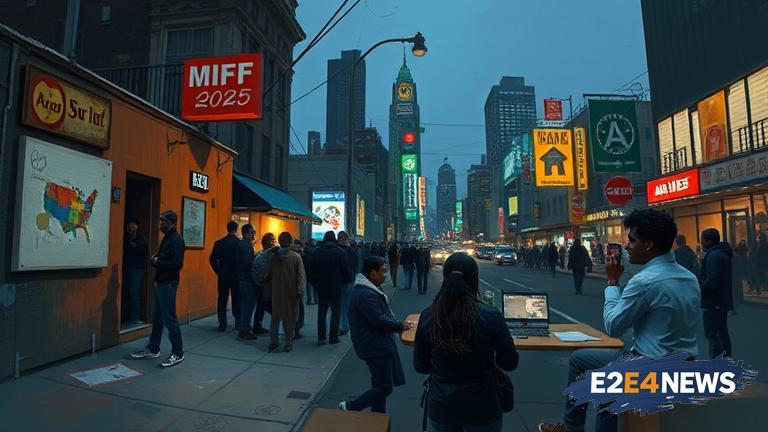The Melbourne International Film Festival (MIFF) 2025 has brought to the forefront a plethora of thought-provoking films, including those that delve into the complex and often uncomfortable topic of racism. One such film, ‘I’m the Most Racist Person I Know’, has sparked intense discussion and reflection among audiences. This documentary, alongside the works of renowned filmmaker Chantal Akerman, traces the nuances of racism and its pervasive presence in our society. Akerman’s films, known for their introspective and often autobiographical nature, offer a unique lens through which to examine the intricacies of identity, culture, and the human experience. By exploring these themes, MIFF 2025 provides a platform for necessary conversations about racism, its manifestations, and the role of art in both perpetuating and challenging societal norms. The festival’s inclusion of such films underscores the importance of cinema as a tool for social commentary and change. Through the stories and experiences shared in these films, viewers are compelled to confront their own biases and consider the broader implications of racism in their daily lives. Furthermore, the works of Chantal Akerman serve as a reminder of the power of art to transcend borders and cultures, speaking to universal human emotions and experiences. Her films, such as ‘Jeanne Dielman, 23 quai du Commerce, 1080 Bruxelles’, are celebrated for their innovative storytelling and profound exploration of the human condition. In the context of MIFF 2025, Akerman’s legacy continues to inspire new generations of filmmakers and artists, encouraging them to push boundaries and challenge conventional narratives. The festival’s focus on diversity and inclusivity is also reflected in its programming, which features a wide range of films from around the world, each offering a unique perspective on the complexities of racism and identity. By fostering a dialogue that is both global and deeply personal, MIFF 2025 aims to promote empathy, understanding, and ultimately, positive change. The impact of such initiatives extends beyond the festival itself, contributing to a broader cultural shift towards greater awareness and sensitivity. As the world grapples with the challenges of racism and discrimination, the role of art and cinema in facilitating this conversation cannot be overstated. Through films like ‘I’m the Most Racist Person I Know’ and the enduring legacy of Chantal Akerman, MIFF 2025 reminds us of the transformative power of storytelling and the importance of ongoing reflection and dialogue. In conclusion, the intersection of racism and high art, as explored through MIFF 2025 and the works of Chantal Akerman, presents a complex and multifaceted landscape that demands our attention and engagement. By embracing this complexity and fostering a culture of open discussion and empathy, we may work towards a more inclusive and equitable society for all. The festival’s commitment to showcasing diverse voices and perspectives is a testament to the enduring power of cinema to inspire, educate, and challenge our assumptions. As we navigate the intricacies of racism and identity, the films of MIFF 2025 and the legacy of Chantal Akerman serve as invaluable resources, prompting us to question, to feel, and to act. Ultimately, it is through this collective effort that we may hope to create a world that is more just, more compassionate, and more deeply understanding of the human experience in all its complexity and beauty.





